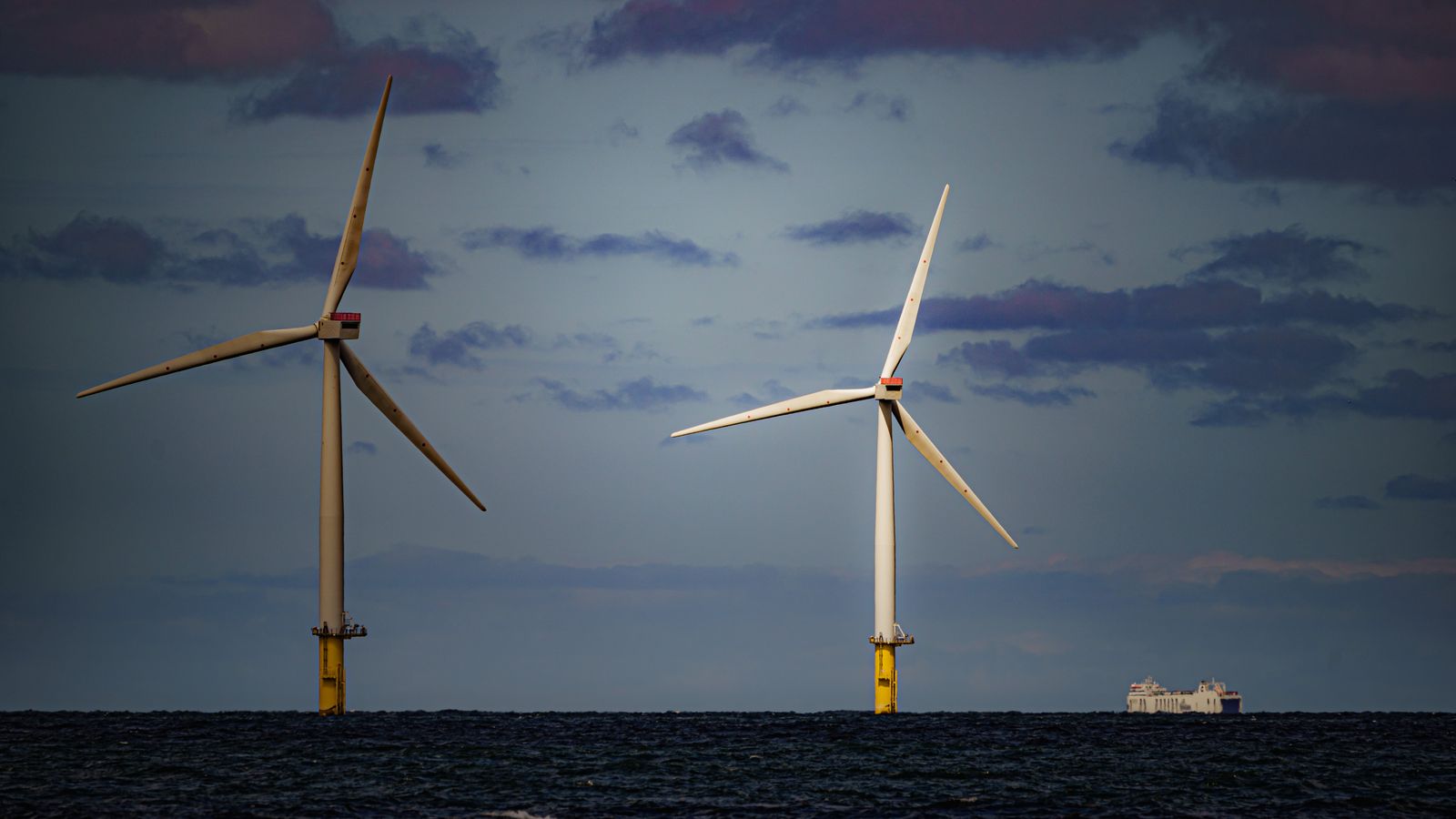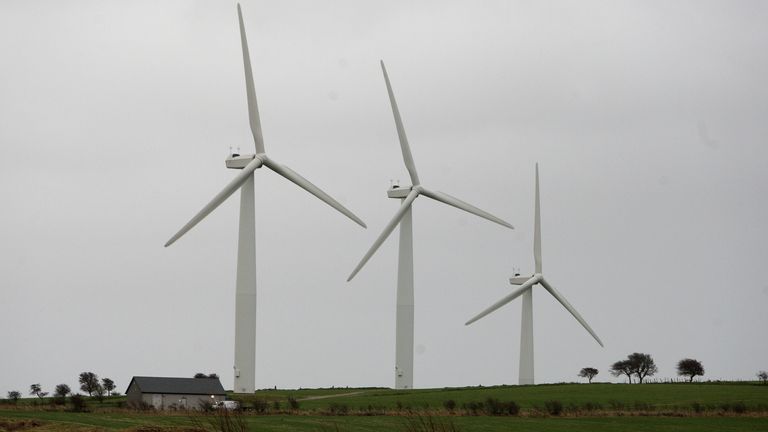Great British Energy to team up with Crown Estate to develop new offshore wind farms

The government is teaming up with the Crown Estate to roll out new offshore wind farm developments as part of its Great British Energy plan.
The partnership is hoping to see up to 30 gigawatts of new offshore wind developments being leased by 2030 – enough to power almost 20 million homes.
The government claims it could leverage up to £60bn of private investment into the country’s energy infrastructure as a result.
Ministers hope it will help towards achieving their goal of cutting energy bills at home, as well as helping the UK to become more self-sufficient when it comes to power.
The deal has been announced the same day the government will introduce legislation to create Great British Energy – a new publicly owned company, promised in Labour’s manifesto, which will have £8.3bn of funding over the next parliament.
Prime Minister Sir Keir Starmer said: “My government is laser focused on delivering change, to make people better off.
“This innovative partnership between Great British Energy and the Crown Estate is an important step toward our mission for clean energy by 2030, and bringing down energy bills for good.”
He also said the partnership would “turbocharge our country toward energy security, the next generation of skilled jobs, and lowering bills for families and business”, adding: “My mission led government is rolling up our sleeves to deliver for Britain.”
The Crown Estate is essentially the monarchy’s property company, which has a £16bn portfolio – including most of Britain’s seabed up to 12 nautical miles from the land.
It made £1.1bn in profit last year, the majority of which came from leasing land to offshore wind providers, and most of the money goes back into the government’s coffers, bar a small portion which goes to the monarchy itself.
In another bill being introduced on Thursday, the Crown Estate will also be given new borrowing powers so it can invest more into wind projects.
Chief executive Dan Labbad said: “The Crown Estate exists to serve the national interest, including stewarding our natural resources to deliver a decarbonised, energy secure and sustainable future.
“With new powers and by partnering with government, we can drive greater investment into this future for our country, and with it support nature recovery and job creation.”
Other details around Great British Energy were unveiled, with the government saying it would lead energy projects through development stages to make them go faster, then give them back to private firms, while keeping a stake to get a return for the public purse.
However, ministers have left the door open for Great British Energy to become an operator of projects themselves in the future.
Greenpeace UK called the announcement “a great first step towards Labour delivering on their strong election mandate for rolling out renewable energy across the country”.
But shadow energy security secretary Claire Coutinho claimed Great British Energy was “nothing but a gimmick that will end up costing families, not cutting bills”.
She added: “Labour have already been forced to admit that their flagship energy company won’t generate any energy, and now we know it’s a financial black hole – funnelling taxpayers’ money into reducing risk for multi-million-pound energy companies.
“Labour’s entire energy policy puts ideology above the national interest… the Conservatives will hold them to account and make sure that the focus is on cheap bills and secure energy.”
Related
Why investing in women is a vital next step for…
Get Nadine White's Race Report newsletter for a fresh perspective on the week's newsGet our free newsletter from The Independent's Race CorrespondentGet our fre
Business secretary signals major shift on electric car policy to…
In a determined effort to retain Nissan’s manufacturing presence in Britain, Business Secretary Jonathan Reynolds has vowed to implement “substantial c
Joint Statement: Business Secretary and Fujitsu Services Ltd
Business and Trade Secretary Jonathan Reynolds today (Friday 7 March) met chiefs for Fujitsu in Tokyo to begin talks over the cost of redress for victims of th
UK foreign secretary backs multilateral defence funding for Europe
UK foreign secretary David Lammy has said that a new multilateral fund will be needed to secure Europe’s defence as he confirmed that Britain is “open to”















